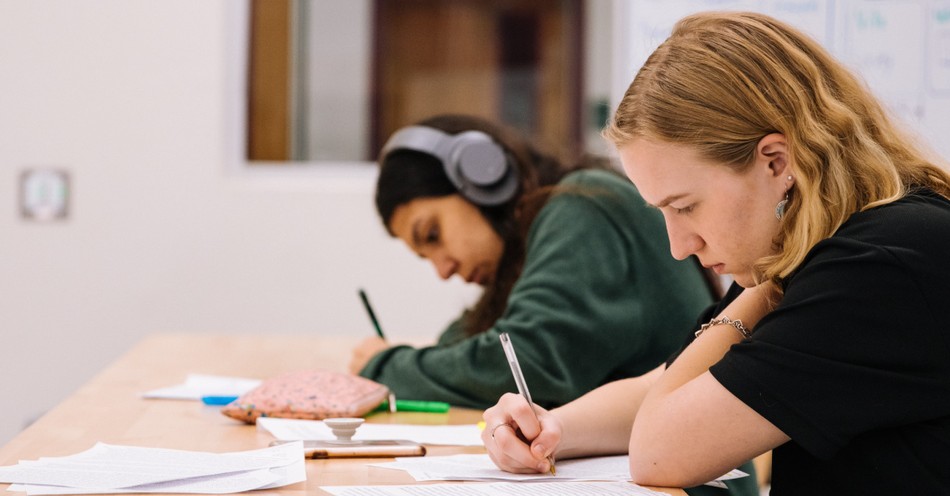Ohio law now mandates that each school district, community school, and STEM school implement a policy banning cell phone usage by students during the instructional day by January 1, 2026. The “instructional day” is defined as anytime the student is expected to be in attendance. This includes formal instruction and the time between classes, meals, recess, and field trips.
While each locality can create its own policy, they are allowed to prohibit the use of all electronic devices, including cell phones, smart watches, and other devices that can receive communications. Students who need access to a cell phone for educational or medical reasons are allowed to use them for specific purposes. While many support the move, some parents fear losing the ability to reach their children in an emergency—highlighting the tension between safety, trust, and technology in a hyper-connected age.
In an age of real threats and constant connection, how do we wisely balance the gift of technology with the call to trust—affirming a parent's right to protect while ultimately resting in God's sovereignty over our children’s lives?
While many parents have become accustomed to monitoring their children 24/7, research reveals that there are real dangers for our kids when they are given early access to cell phones. Public Education is struggling, and cell phone usage is just one of the many barriers teachers and students face.
Ohio made this bold move based on data showing multiple benefits to taking phones and devices out of kids' hands in school. Banning smartphones significantly improves the mental health of our students, especially among girls. After these bans were implemented, schools saw a drop in bullying across genders. Girls’ GPAs improved and were more likely to attend an academic high school track. Girls from lower socio-economic backgrounds will likely benefit most from these policies. Additionally, studies have found that students' academic performance improved when smartphones were banned. Banning smartphones and devices is a low-cost way to improve our students' education, mental health, and safety.
While many parents may still have some anxiety about sending their kids to school without a phone, schools are prepared to find alternative ways to stay in touch when necessary during the school day. Some schools allow designated unlock zones, allow students to use office phones to contact parents, or allow them to message parents on school tablets/laptops. Students who need phone access due to a special need or health concern can apply for special permission for their child to carry their phone during the day.
Additionally, cell phones often get in the way of safety in the tragic event of a school shooting or other safety crisis. Students using their phones during an emergency can be a terrible distraction from the directions given by staff. They can also get in the way of rumor control and disrupt or delay first responders. Students' phones can get in the way of public safety responses when parents and the community arrive at the emergency scene, amidst an evacuation. Cell phones are often used to threaten students and staff, which takes time to investigate. They are also often used for making threats to individual students via cyberbullying, starting fights, and creating other safety disruptions during the school day.
In our ultra-connected age, it’s easy to desire a sense of control, especially for our children. I feel that deeply as a mother to six kids! My oldest is 13, and I have to drop him off into the great, big, chaotic world alone. I trust that he will be able to navigate the challenges presented to him well. A few things help me not to go into panic mode as my kids' lives expand and I have to let them go to school, sports, friends ' houses, church, jobs, and more.

The Hidden Costs of Early Phone Access
First, I have taken the time to understand the harms of smartphone usage for those under 18. Smartphones, social media, and more are wrecking a generation. Check out The Anxious Generation if you want to learn more. He is not a Christian necessarily, just a scientist relaying the alarming facts around phones and how they have impacted an entire generation for the worse. Understanding your need to track your child does more harm than good, and can help you stay the course and take comfort in these data-backed school policies.
The digital world can be alluring for kids and parents because we believe our kids are “safe” at home playing video games or on the internet. We think our kids are safe because we are tracking their movements, or they are constantly texting us. But this world is not real, and when we allow our kids to get caught up in it because it feels less scary for us as parents, we are stealing our kids the chance to learn the skills they need for the real world. In many cases, we are stunting their maturity and independence.
Additionally, the digital world is actually far from safe. Kids are being exposed to porn, bullying, digital addictions, their mental health is being harmed by social media, and so much more. Our kids are not ready for the wild west, which is the internet, and protections such as cellphone bans in school are one key way to guard them from the many dangers of the digital world.
Letting Go of Control to Build Real-World Skills
Next, we teach our kids to be independent and talk to adults if needed. In our home, our kids use a dumb phone when being dropped off without an adult close by, such as at the pool, biking around the neighborhood, or mowing a neighbor's lawn alone. No data, no internet, and only old school texting. If they are in a school setting, we don’t send a phone as we know it’s distracting. We have taught our kids to engage the adult in charge of them if they have an urgent need. One drawback of individual cell phone usage is that we expect every problem to be solved alone. As parents, students, and communities, we have to reestablish trust and better communication in our schools. Teachers are there to care for the students; they should be engaged and their directions should be followed if there is an urgent situation.
Trusting God Over Technology
Finally, I have to trust the Lord. Ultimately, I cannot shield my children from all the harms of the world. When I try to control my kids' every movement and track them at every turn, this is a heart issue for me. As parents, we do all we can to protect our kids, but there is a limit to what we should and can do for them.
Psalm 56:3-4 declares, “When I am afraid, I put my trust in you. In God, whose word I praise, in God I trust; I shall not be afraid. What can flesh do to me?” As we evaluate what’s best for our kids, we have to confront our fears and choose to put our trust in God. That cell phone isn’t God, and actually, it has more power to harm your child than it does to protect them.
Photo Credit: Jeswin Thomas/Unsplash



.jpg)

